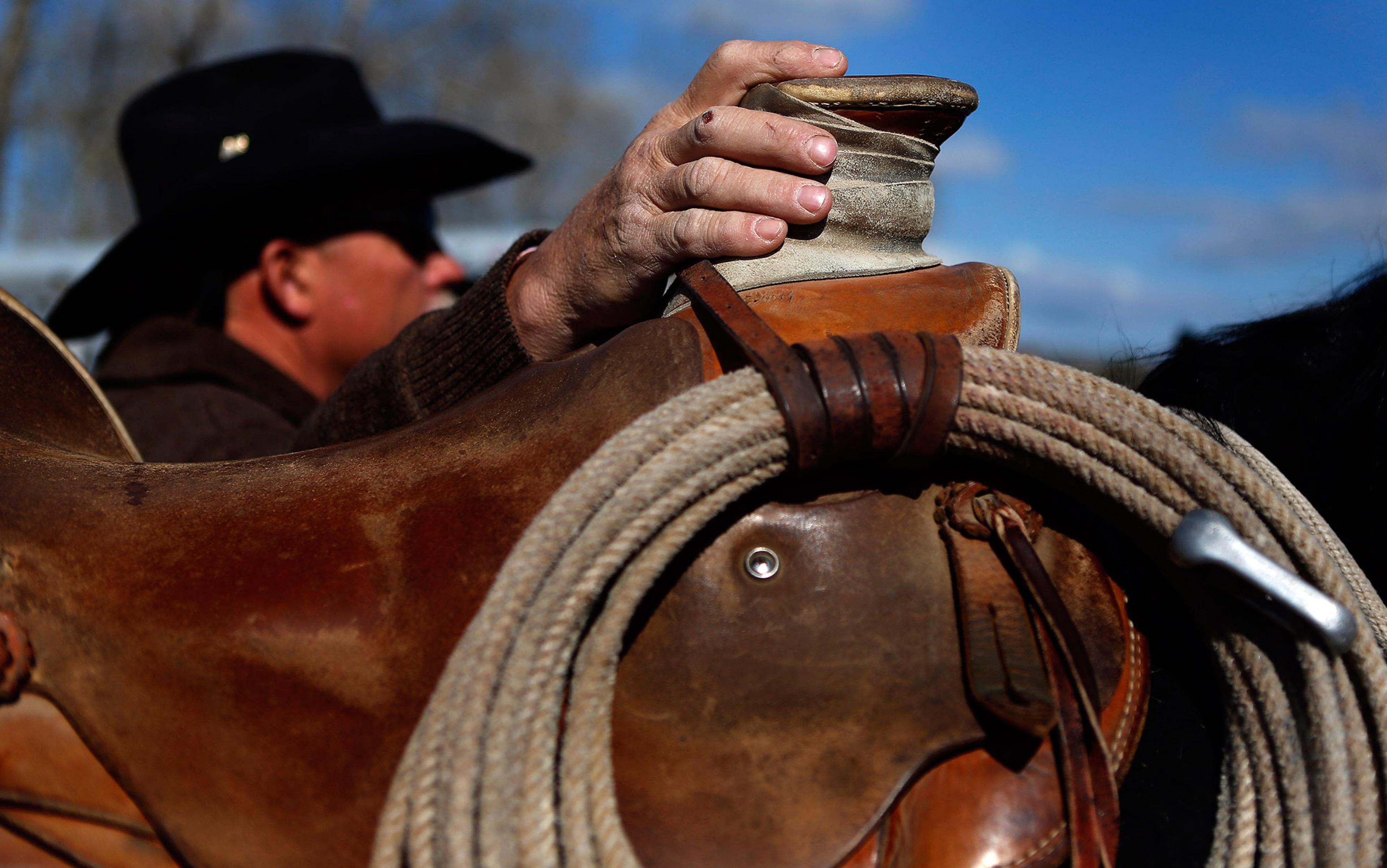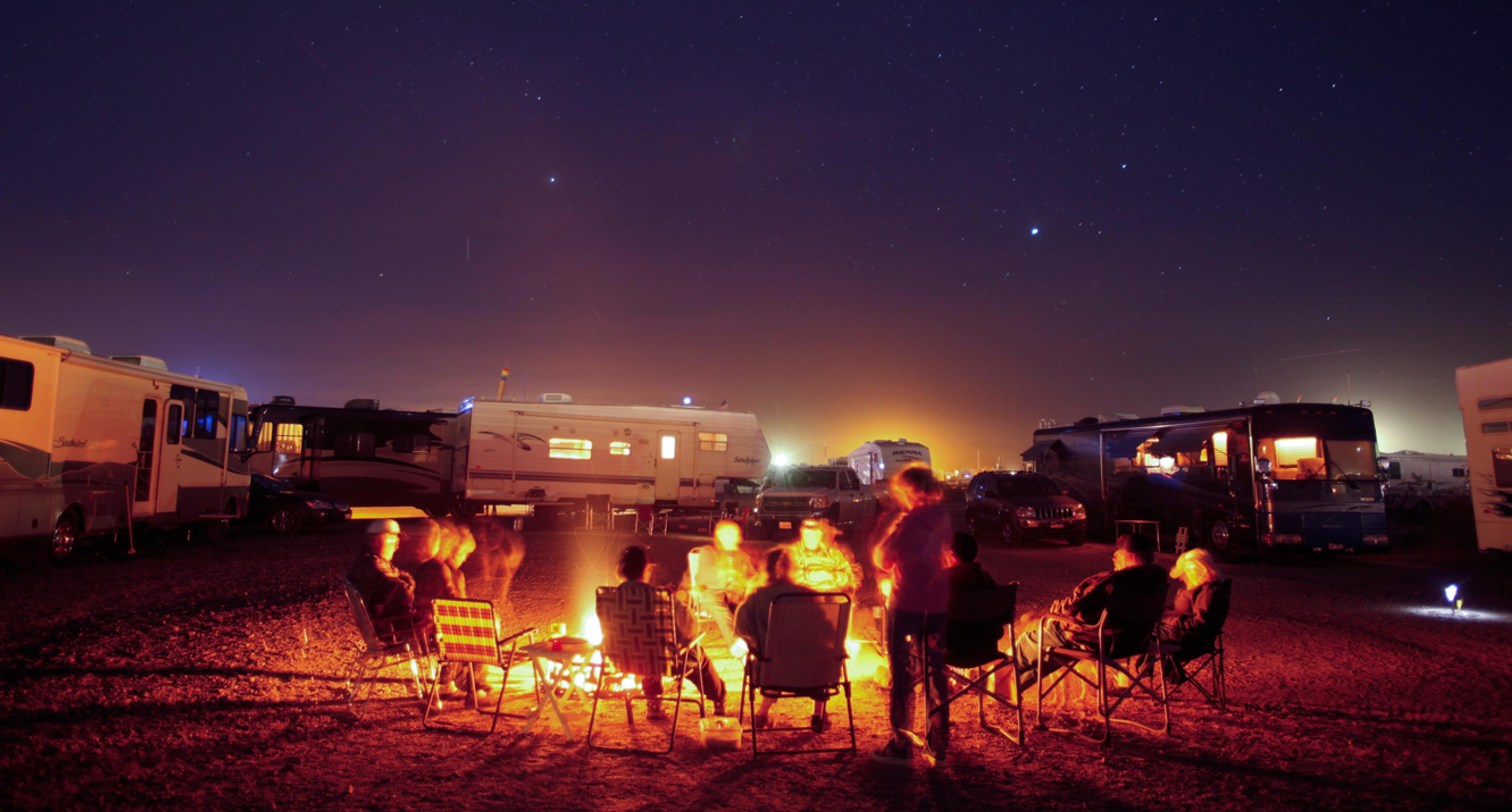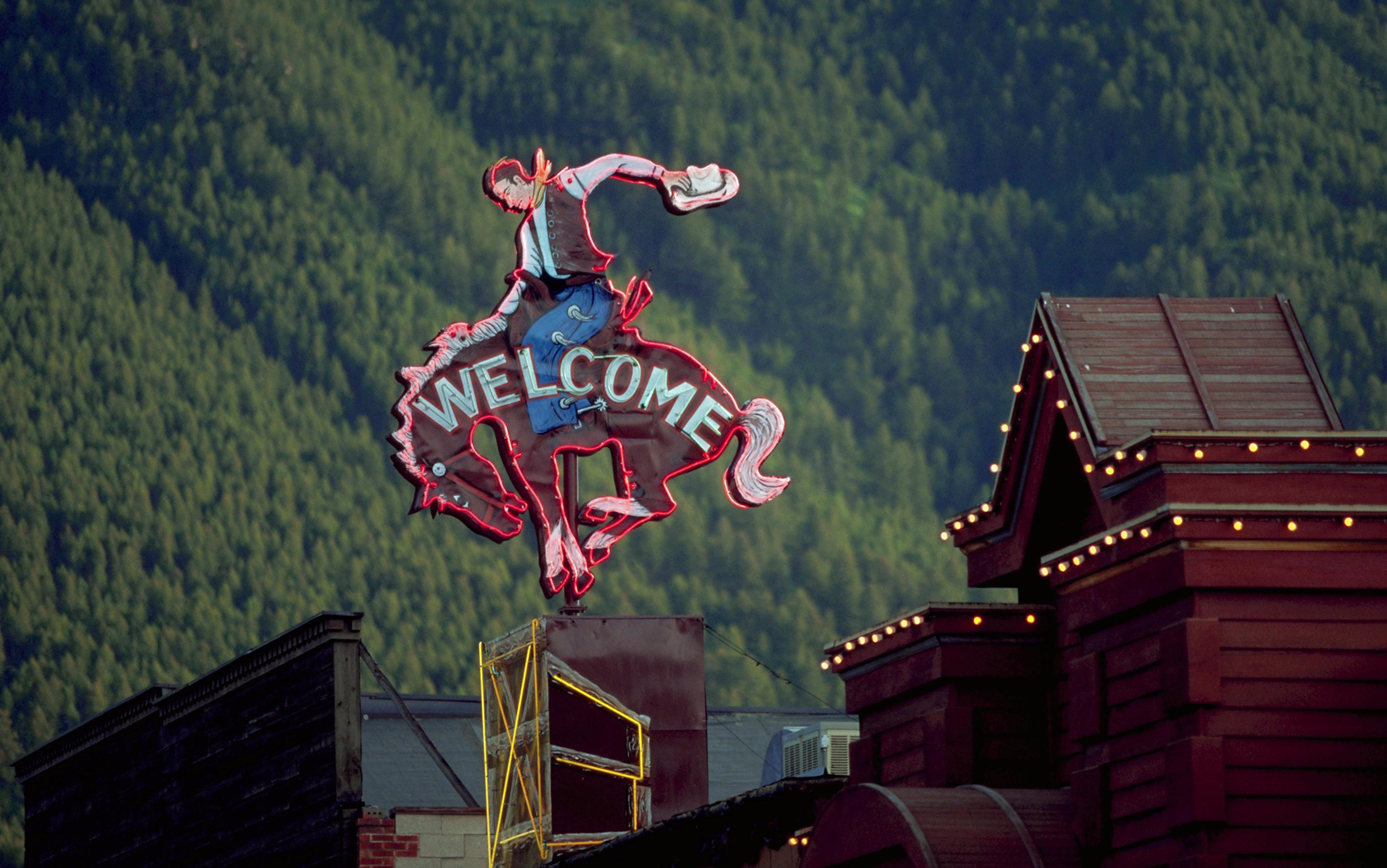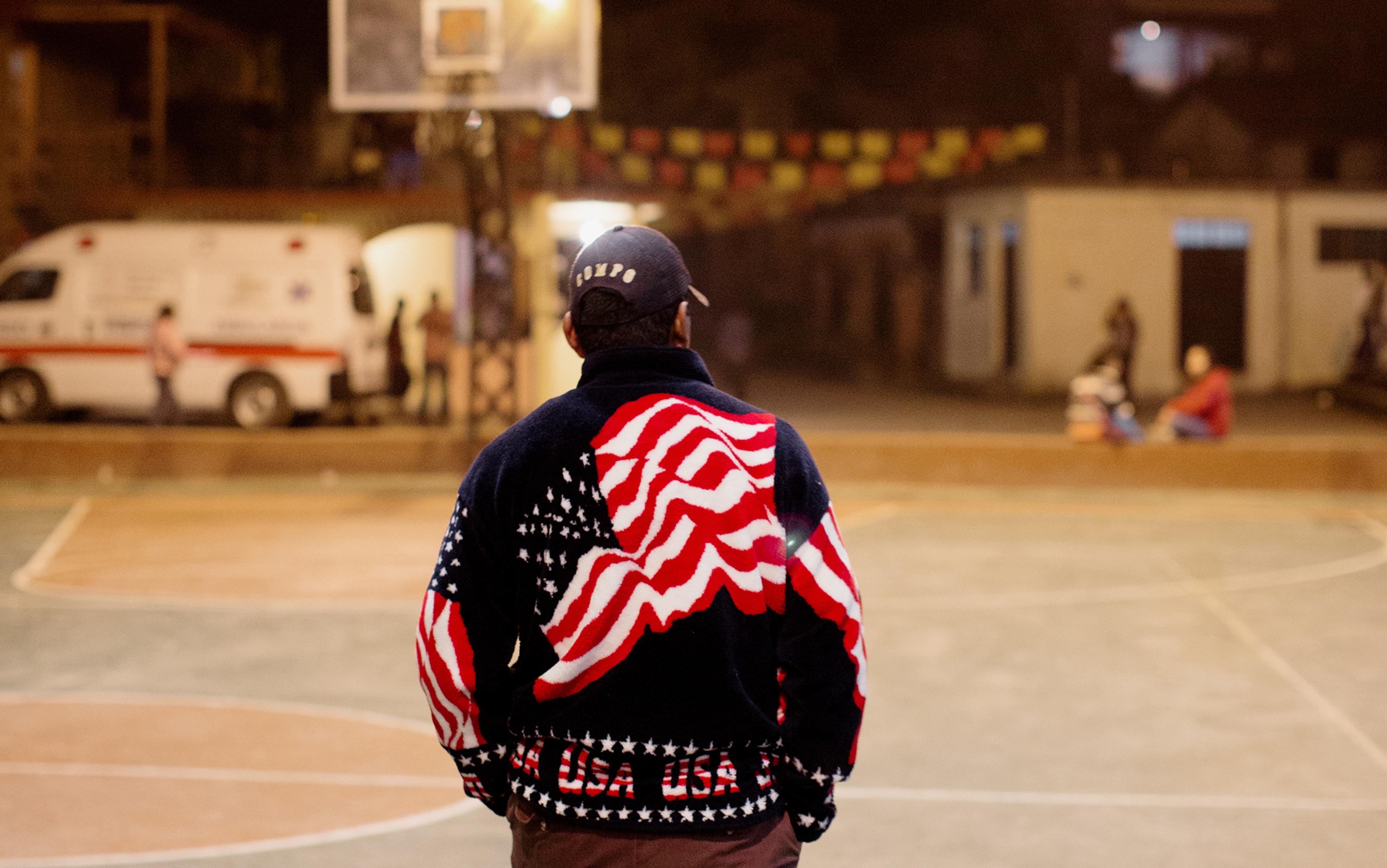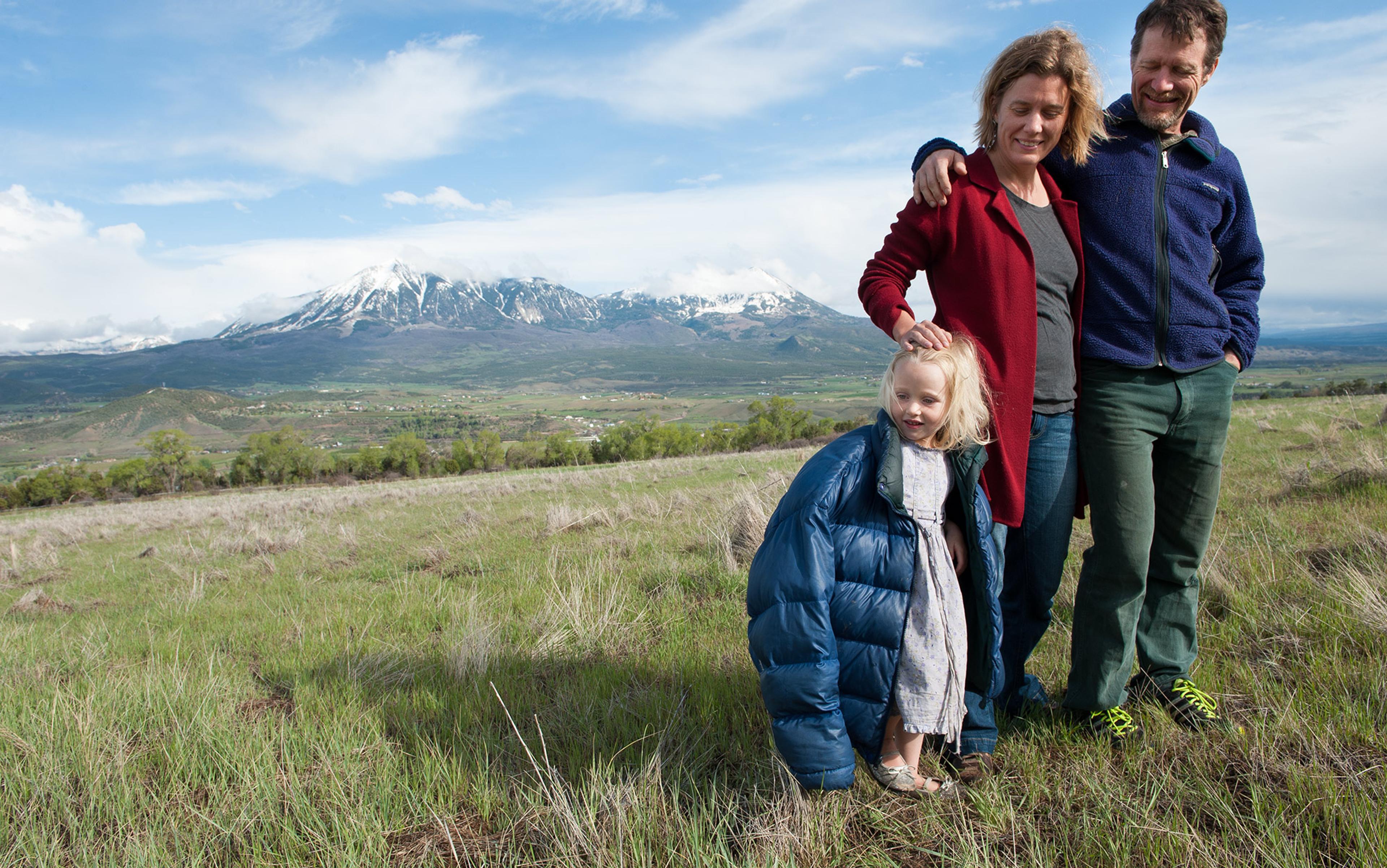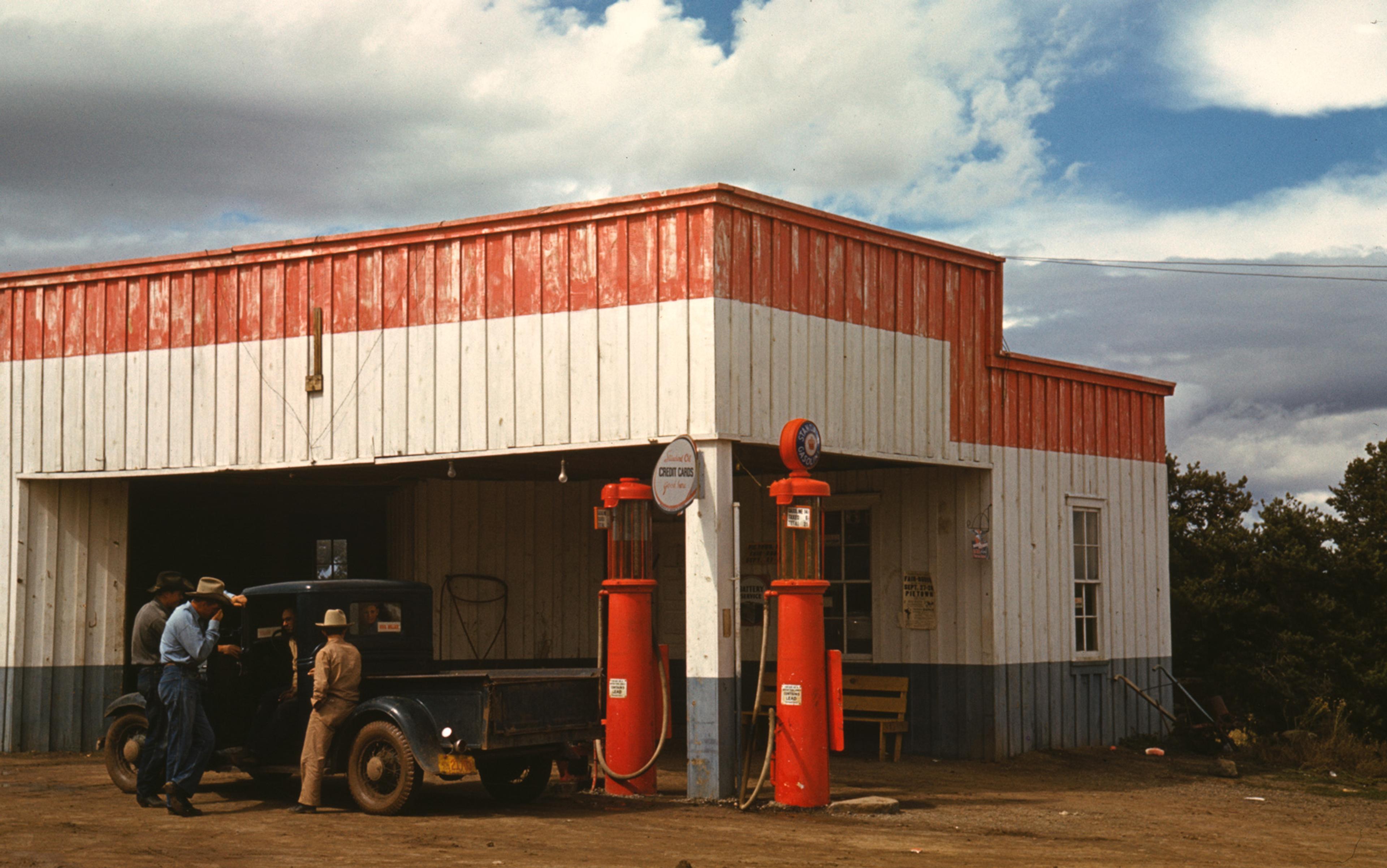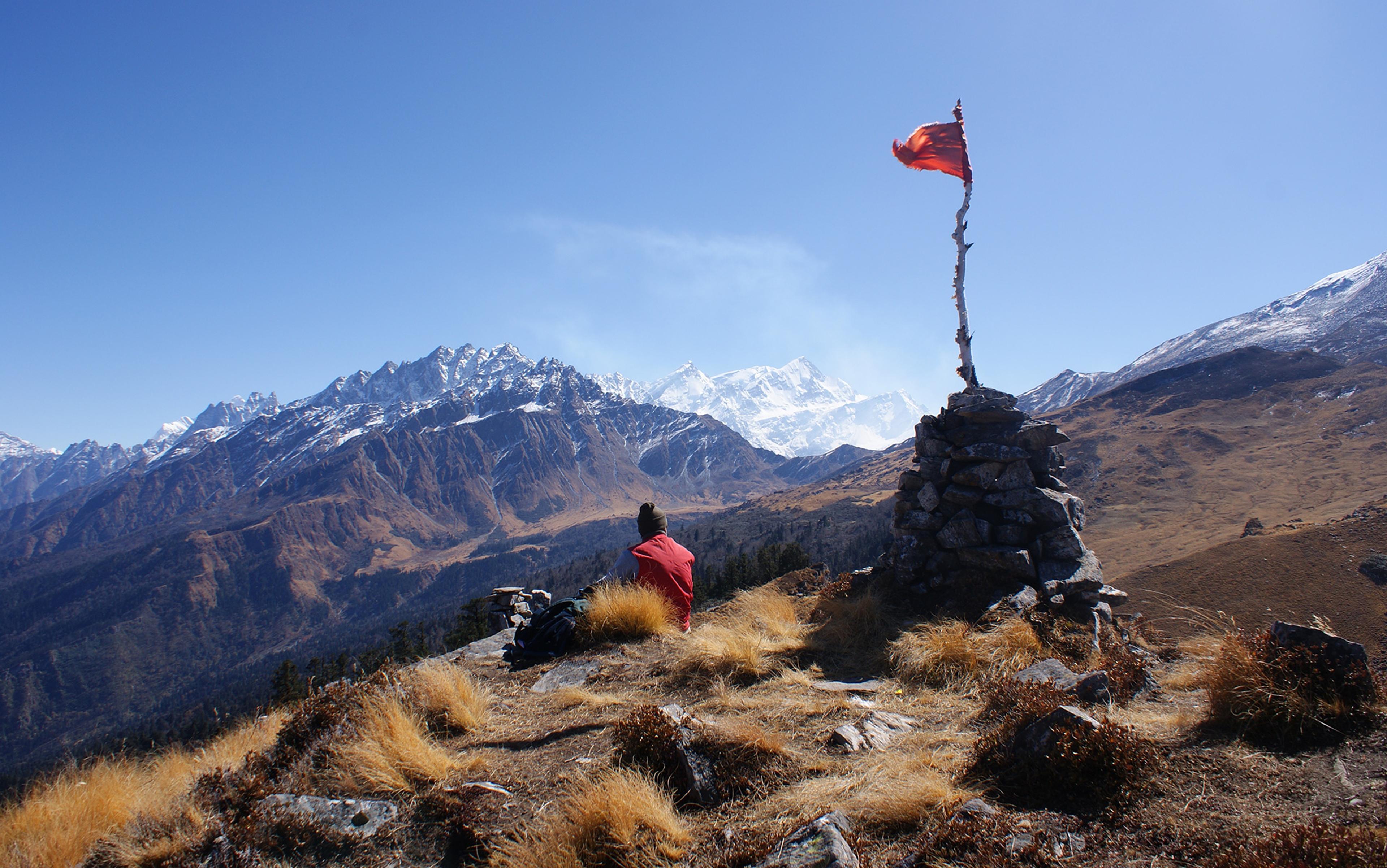The best part about a dude ranch takes place behind the scenes. Having been up since dawn collecting the horses for the day’s rides, the wranglers eat breakfast. Their plates are heaping, and the portions fit for a teenage boy, which several of them are. And they put Tabasco on everything – eggs, sure; hashbrowns, of course; but pancakes also get a liberal sprinkling.
When the wranglers first walk into the mess hall, they’re rowdy, boisterous, the sounds of their boots like a steady downbeat. They push each other through the line, chiding anyone who takes too long dishing up, but when everyone sits down and begins to eat, a near-silence overtakes the room. You can smell the land coming off these dozen still-sleepy-eyed men and women, a mix of hay and soil and what I can only describe as the scent of early mountain morning.
Watching the wranglers eat is what I remember most vividly from my time on a dude ranch in the Wyoming mountains, but I was always observing from across the room or down the table, where the rest of the ‘help’ sat working our way through fruit salad, cottage cheese and cereal. We might have been up since the same dawn as the wranglers, but our work created a much smaller hunger. We smelled like the breakfasts we had laid out; they smelled like the West.
The ranch where I worked that summer was a ‘guest ranch’, one of hundreds that dot the mountains of the American West and Southwest. In the 19th and early 20th century, working ranches would take on guests from the East during the tourist season as a source of supplementary income; in those day they were still raising and slaughtering cattle or sheep as their primary business, with just a little hospitality on the side.
Why would genteel Easterners have paid to forgo the comforts of home? For much the same reason that we go to the West today: a longing to escape modernity. Modernity at the turn of the 20th century looked more like trolleys and telegrams than the traffic jams and cell phones of today, but the impulse was the same: go west, and find escape – a return to a bygone way of life and, by extension, a return to the essential America.
This early onset nostalgia was an outcome of Frederick’s Jackson Turner’s now-famous ‘Frontier Thesis’, delivered in 1893 and popularised in the years to come, which made two influential arguments: that American democracy was predicated on the presence and civilising effect of the ‘frontier’ and that, as of the 1890 census, the frontier was ‘closed’. In other words, the very thing that had structured the development of the American ethos was disappearing: see it, preserve it, experience it while you can.
the wranglers and guides always acted the part of Westerner as friend, but a friend who was in service to the well-paying Dude
The continued spread of the National Park system, the cultivation and success of the Teddy Roosevelt cowboy persona, the rise of the Western in films such as The Great Train Robbery (1903) and dime novels (think Zane Grey), and the massively successful ‘See America First’ tourism campaign can all be viewed as reactions to Turner’s thesis, as can the spread of the dude ranch industry, which formalised itself with the 1926 creation of the Dude Ranchers’ Association, or DRA.
According to Columbus State geographer Amanda Rees, the DRA laboured to regulate the structure, image, and even the guest ‘quality’ of the dude ranches. Following sharp declines in the price of beef after the First World War, many traditional ranchers incorporated and accentuated the mythology of the West that had percolated around them for decades. As the Western writer Maxwell Struthers Burt explained in 1924, the dude ranch was ‘an ordinary ranch amplified’. These ranches, argues Rees, promoted isolation ‘as an asset rather than a liability’ while creating an exclusive and intimate ‘dude experience’ that included the sort of hands-on activity that would make a guest feel like he was part of the Old West – coupled with the service that wealthy Easterners would expect. Put differently, the wranglers and guides always acted the part of Westerner as friend, but a friend who was in service to the well-paying Dude.
The DRA insisted that the term ‘dude’ was used with affection – a change from its original use, in the 1880s, when, according to the OED, it was slang for a ‘new kind of American man’ who ‘affects English dress and the English drawl’. A man of ‘exaggerated fastidiousness… Given to ridicule… A swell.’ Apply the concept to the West, and you have the man who purchases a full Western get-up from Abercrombie & Fitch (originally a Western outfitter) and fancies himself a cowboy. A dude, then, is a fake but a fake with means.
Those means were crucial to the survival of the industry, and the ranches worked hard to cultivate a very specific sort of clientele, distinguishing ‘guests’ from the swarms of ‘tourists’ who clogged the trains and national parks. Many ranches required a letter of reference from a previous guest; it went unspoken that Jews and non-white races were unwelcome. The real ‘prizes’, vaunted in DRA newsletters, were royalty and other dignitaries from Europe, which further distinguished the dude ranch from the typical Western attraction.
Over the course of the 20th century, the dude ranch became a fixture in the mythology it was helping to propagate. Today, the hundred-plus DRA lives on, trumpeting the four Hs of dude ranching (‘Horses, Hats, History, and Hospitality’) and advising potential dudes that ‘There is a little cowboy in all of us … come find yours today.’ That’s the call I heard when, as a senior in college, I decided I wanted my first experience out of school to be something that returned me to my Western roots.
Which is to say that I wanted to return to a West that I hadn’t ever really known. Everything about the dude ranch seemed clean and palatable, whereas my Northern Idaho town was filled with double-wide trailers, rusted-out trucks sinking into the ground, and men whose Copenhagen snuff containers had worn white rings on the back pockets of their Wranglers.
Even that West wasn’t really mine. My kindergarten class pictures feature my beloved pair of cowboy boots, but my parents were from the Midwest, really just playing dress-up with the accoutrements of Western culture. Even as I learned to refer to all vehicles as ‘rigs’ and how to count points on the racks of antlers that filled the walls of my friends’ homes, I was like a junior anthropologist, storing away observations for later use.
When I went to college, I became the closest that my new city friends had to a rural informant. Those details came in handy as I could tell stories about the parking lot reserved for ‘hicks’ and their massive trucks; the guys who’d spit their tobacco juice directly onto the classroom floor; the week we got off school for the beginning of hunting season; the rodeo team. To some extent, we all turn our lives into a series of anecdotes, but I was telling stories of a life that had, in most ways, rejected me: I drove a 1990 Subaru and was known around school as a ‘ball-buster’. I wasn’t asked to Prom.
Jackson, a Wild West town reverse-engineered for maximum tourist enjoyment, where actors stage a shootout at high noon every Saturday
What do we do to the things that don’t want us? We fetishise them, turning them into objects of desire, devoting ourselves, often masochistically, to the impossible task of obtaining that which rejects us. That’s exactly what I did to that idea of the West in the stories I told to my college friends, to my boyfriend, to my French host mother while studying abroad. I fetishised it so thoroughly that when it came time to think about what I wanted to do in the months following graduation, I decided to return to the source.
I wanted the dude ranch: something rugged and remote, some place where the beer weight accumulated in the last months of college would slough off me as I woke before dawn to stoke the fire and wash my face in the mountain stream: the raw materials of which the most impressive anecdotes were made.
I found a dozen of these ranches clustered around the Tetons, the jagged mountain range in the Northwest corner of Wyoming named, according to lore, by a French-Canadian trapper who saw the image of a woman’s ‘tetons’ in the landscape before him. Teton National Park skirts the town of Jackson, the sort of Wild West town reverse-engineered for maximum tourist enjoyment. It has faux-Western store fronts made of new wood painted to look old, a Million Dollar Cowboy Bar, and a town square fenced with tangles of old antlers, where actors stage a shootout at high noon every Saturday. There was a Thai restaurant and a spa, five-star hotels, and the home of the then vice president, Dick Cheney.
There were also remnants of a different time and vibe: hotels from the 1970s, old pancake houses. These places stayed in business by catering to the middle-class families that arrived in the National Park by trailer or car, laden with massive coolers packed with cold-cuts and generic soda. These were the descendants of the tourists the original dude ranchers had worked so hard to avoid. They devoured the West from the windows of their vehicles, making an interminable cavalcade that inched through the national park like a constipated snake.
As before, the tourist isn’t welcome at the dude ranch. Dudes don’t arrive by family car. Instead, they arrive in Jackson via the airport, where they are picked up by eager ranch employees who shuttle them back to the ranch in air-conditioned comfort, a chilled bottle of water by every seat.
All mountain-based dude ranches have a few things in common: horses, of course; wranglers to wrangle them, certainly; but also a catchy name, almost always associated with the ‘brand’ of the ranch – literally, the unique symbol of the ranch in the form of a molded piece of iron that’s shaped, heated, and applied to the flesh of animals to indicate ownership.
Brands were used to keep one man’s cattle and horses from another man’s, even when the two shared grazing grounds. But modern dude ranches don’t raise cattle, and the horses they keep are used for lackadaisical trailrides, not transport and cattle work. So the livestock brand morphs readily into a contemporary capitalist brand: the symbol embroidered on the denim shirts for sale in the giftshop, just $69.99 a piece. Circle R, T-Cross, Heart Six: the iterations are endless.
My ranch, the Triangle C, was nested in a crook in the Wind River, an hour outside of Jackson on the way to the town of Dubois. A century earlier, it had been the Tie Hack camp, where hundreds of Scandinavian immigrants had felled the trees or ‘tied the hacks’ that would become the railroad that would, decades later, be replaced by the highway. Their old cabins – riddled with gunshot, supposedly from the long tedium of the Wyoming winter – still stood, with ramshackle retrofitted windows looking out onto the river below. Some even had bathrooms – spider-filled, mouldering bathrooms – and that’s where we staff stayed, bunked in, two to three.
From afar, the staff cabins looked rustic and quaint. But there was a reason they were located half a mile from the guest cabins, which were luxurious in the unique manner that only multiple animal skins and heads on the wall can convey. The guest bedrooms were filled with ‘dude ranch vernacular’: huge log beds; expensive, scratchy Pendleton blankets; bad landscape paintings of cowboys riding into the sunset; and framed signs kindly requesting guests to ‘Take a Load Off, Pardner’. Shelves and coffee tables were filled with old licence plates and rusted-out farm gear; when I asked the head housekeeper where they came from, she guffawed something that sounded a lot like ‘eBay’.
he had a face like Gary Cooper and a body made for chaps. He had no clue and perfect manners, which meant he always got the best tips
I know what the insides of the guest cabins looked like because it was my job to clean them. Also: do the laundry, prep the meals, work as a waitress, and be an all-around amiable young woman at home in the West. A dress code stipulated that we must, at all times, wear a branded Triangle C button-down shirt, all straight from 1995, and ‘Western Wear’, which usually took the form of tight jeans, a belt buckle, and a handkerchief tied around my hair.
Along with the other four girls between the ages of 18 and 22 on staff, I woke at 5:45am, prepped and served breakfast, cleaned cabins while the guests were out on trail rides, prepped lunch, took a nap, swam in the river, prepped and served dinner, and often fell into bed by 9pm. The family that owned the ranch was Mormon, which meant no alcohol, save the expensive wine for guests. We were 20 minutes from Dubois, which offered squaredancing on Tuesday nights, but you had to open three horse gates just to get your car out of the pasture. The inertia towards the pillow was strong.
The wranglers, however, had a far sexier day – at least it looked that way to me. Their breakfasting, still so vivid in my mind today, was like an outtake from one of hundreds of Western B-movies. And unlike us college student interlopers, these kids were the real deal. One was a rodeo champion from western Nebraska who arrived in a massive truck, paid for with roping winnings, towing her prize gelding. Another, raised outside of a small Wyoming town the very inverse of Jackson, had a face like Gary Cooper and a body made for chaps. He had no clue and perfect manners, which also meant that he always received the best tips. And then there were the owners’ daughters: four young women with perfect hair and teeth and skin. They looked great in cowboy hats and sang in harmony at the weekly cook-outs.
Performance was in their blood. Their father ran the ranch, but their mother ran the Jackson Hole Playhouse, which operated as a sort of dinner-theatre-meets-community-musical: lots of Paint Your Wagon and Oklahoma! Each of the eight golden-haired children rotated between the playhouse and the Triangle C, with only slight variations on the sort of beautiful Westernness they performed on a given night. They were like Von Trapps, only with more twang and a religion they deftly elided around guests.
I might have been the one changing the guests’ sheets and refilling their water glasses, but the wranglers were the real point of Western contact: pairing them with horses who had names like Steely and Bucket, complimenting their mediocre riding abilities and, on the day-long trail rides, regaling them with tales of 20-foot snow drifts, moose that knocked on cabin doors, and why rotten mayonnaise is a key ingredient in bear-bait.
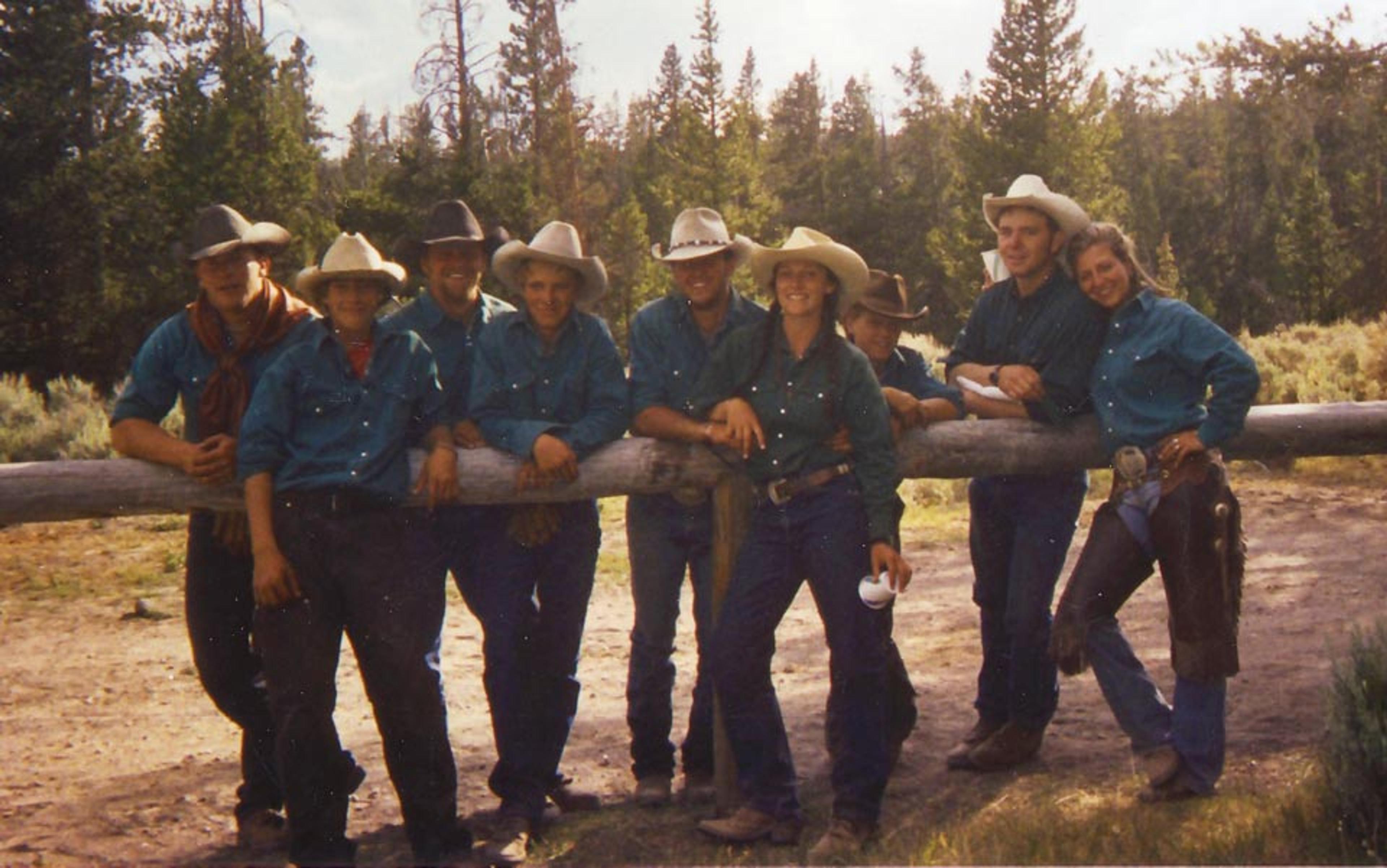
Anyone could pitch a tent on the Wind River, or with a view of the Tetons, but it was the wranglers who gave dudes an experience of the West. It certainly wasn’t me or my Dartmouth roommate. We’d been attracted to the summer job for the same reason the guests were: to come back with an experience, a set of stories to wield at cocktail hours. To distinguish ourselves from others and their vacations. To experience authenticity and, by extension, authenticate ourselves.
Americans prefer not to see the wounds the West has sustained for serving that role in their national identity
The wranglers might have been amplifying their performance of Westernness, but they didn’t take these jobs for the experience. They took them for the chance to get paid to ride horses and, I’d imagine, for the amazing tips. This became clear to me every time one of them teased me for taking pictures at the weekly all-ranch rodeo or a particularly gorgeous sunset over the river. Like the Dudes, I was desperate for evidence of my time on the ranch: for proof that I had been there, that this life had been my own, even if only for three short months before returning to the urban sprawl. For them, this was just life, and people seldom take pictures of the things they feel no need to prove.
My favourite usage of ‘dude’ is from Saskatchewan’s Prince Albert Times, published in July 1893: ‘The dude is one of those creatures which are perfectly harmless and are a necessary evil to civilization.’ If, circa 1926, the frontier had been closed for 30 years, then the dude – and his or her desire for an experience that no longer exist – animated what little remained of that former civilisation. As the ability of Westerners to make a living off the land itself, rather than the mythology of it, erodes further, the dude animates the West still.
We go to the West to feel powerful – to feel masculine, whether we identify as male or female – but the only way we can do so is by making the West itself into a passive object: mystical, beautiful, and subject to our gaze. We spend a week rebuilding our flattened libidos – on the trail, on horseback, on the top of a mountain – then return to the East, the urban space, wherever that is not West, restored. Ready, once again, to be robust Americans.
The problem, of course, is the ethos of domination, exploitation, and wilful blindness that accompanies that relationship. We see the West for the babbling brooks and mountains and trees, not the uncontrollable wildfires, the unencumbered spread of beetle kill, the copper and silver mines transformed into superfund sites. Americans see the West’s usefulness in maintaining some semblance of national identity and prefer not to see the wounds it has sustained for serving that role.
The Dude Ranch is one of the only ways for many Westerners, especially those committed to staying on the ranch, to survive. But whether or not the dude – and others, like myself – are ‘perfectly harmless’ in our desire to fetishise that way of life… that’s a question best-suited to someone who actually knew how to wear a pair of chaps, not just write about those who wore them well.
